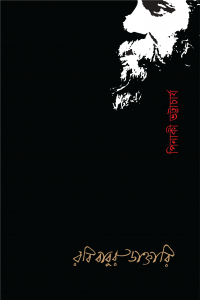The owner of a bus told Taslima that her husband Farooq had been detained at a police outpost at Bhulta. She cooked rice and fish and took the meal to the outpost for her husband. Police did not allow her to enter the outpost easily. After she insisted for a long time, they allowed her to meet her husband and offer the food to him.
Farooq said to Taslima that police had beaten him up badly. “I admitted everything,” he said to his wife. However, Taslima said she did not know what that confession was about.
In 1971, Pakistani soldiers abducted many Bengalis and took them to their military camps. Relatives of those people would go to the camp with food and meet them.
We know the story of Azad, a freedom fighter who was a guerilla with a crack platoon. Pakistani soldiers caught him and detained him in a military prison. His mother used to go to meet him in the prison.
One day Azad said to his mother that the soldiers had beaten him badly and he had not eaten any meal for two days. He asked his mother to bring some home-cooked rice for him. The mother carried rice for him the next day. But, she could not find her son. Azad had been killed in the past hours. The distraught mother returned home and she never ate rice as long as she was alive.
Anisul Haque wrote a novel on Azad and his mother. Very strangely, both the true stories of Azad and Farooq are very similar to each other. In one case the occupying forces were involved in a country where they laid a siege. But, in the other case, the perpetrators are from the State forces of the victim’s own country.
Perhaps, one day someone will write a novel on this story of Taslima and Farooq. An artist will perhaps draw an illustration of Taslima, with cooked rice, waiting for her husband inside the police outpost. And, that illustration will perhaps carry a name like “The Last Supper”.
Click here to read the original Facebook post
“তাসলিমা বলেন, শনিবার একজন ‘মহাজনের’ (বাসমালিক)মাধ্যমে তিনি জানতে পারেন, (তাঁর স্বামী বাস ড্রাইভার)ফারুক ভুলতা ফাঁড়িতে আছেন। জানার পর রাতে বাসা থেকে ভাত-মাছ রান্না করে তিনি ফাঁড়িতে নিয়ে যান। কিন্তু প্রথমে পুলিশ তাঁকে ঢুকতে দেয়নি। অনেকক্ষণ অনুরোধ করার পর তিনি স্বামীকে খাবার দিতে পারেন, দেখাও হয়। ফারুক তখন তাঁকে বলেন, ‘ওরা খুব মারছে, আমি সব স্বীকার করছি।’ ফারুক কী স্বীকার করেছেন, জানতে চাইলে তাসলিমা বলেন, তিনি তা জানেন না।” (প্রথম আলো)
একাত্তরে পাক মিলিটারী অবরুদ্ধ স্বদেশ থেকে এভাবেই তুলে নিয়ে যেত বাঙালিদের তাদের ক্যাম্পে। স্বজনেরা দেখা করতে যেতেন। খাবার নিয়ে যেতেন।
তেমন একজন মুক্তিযোদ্ধার গল্প আমরা জানি। নাম আজাদ। ক্র্যাদক প্লাটুনের গেরিলা ছিলেন। পাক মিলিটারীর হাতে ধরা পড়েন। বন্দি আজাদের সাথে আজাদের মা দেখা করতে যান।
আজাদ বলে, মা ওরা খুব মারে, দুদিন ভাত খাই না, ভাত নিয়ে এসো। মা পরের দিন ভাত নিয়ে হাজির হন কারাগারে। কিন্তু ছেলের দেখা মেলে না। আজাদকে হত্যা করা হয়েছিল। আজাদকে ভাত খাওয়াতে না পেরে আজাদের মা নিজে জীবনে আর কোনোদিনও ভাত খাননি।
এই ঘটনা নিয়ে একটা বিখ্যাত উপন্যাস লিখেন আনিসুল হক।
কী অদ্ভুত মিল দুই গল্পের। দুটোই সত্যি ঘটনা। একটা ছিল পরাধীন দেশে দখলদার বাহিনীর আরেকটা স্বাধীন স্বদেশে নিজ রাষ্ট্রের বাহিনীর।
তসলিমা বেগমের গল্প নিয়েও হয়তো একদিন কেউ উপন্যাস লিখবেন। তসলিমা বেগম পরম মমতায় তার স্বামীর জন্য যেই খাবার নিয়ে গেছিলেন, পুলিশ ফাড়ির সেই দৃশ্য একদিন কোন চিত্রশিল্পী নিশ্চয়ই আকবেন। সেই ছবির নাম হবে “দ্য লাস্ট সাপার”।
লেখাটির ফেইসবুক ভার্সন পড়তে চাইলে এইখানে ক্লিক করুন










2 Responses
The human history is one of a struggle between the oppressor and the oppressed. We will wait till an emancipator emerges to bring out men form this nightmare,
আরো লিখুন